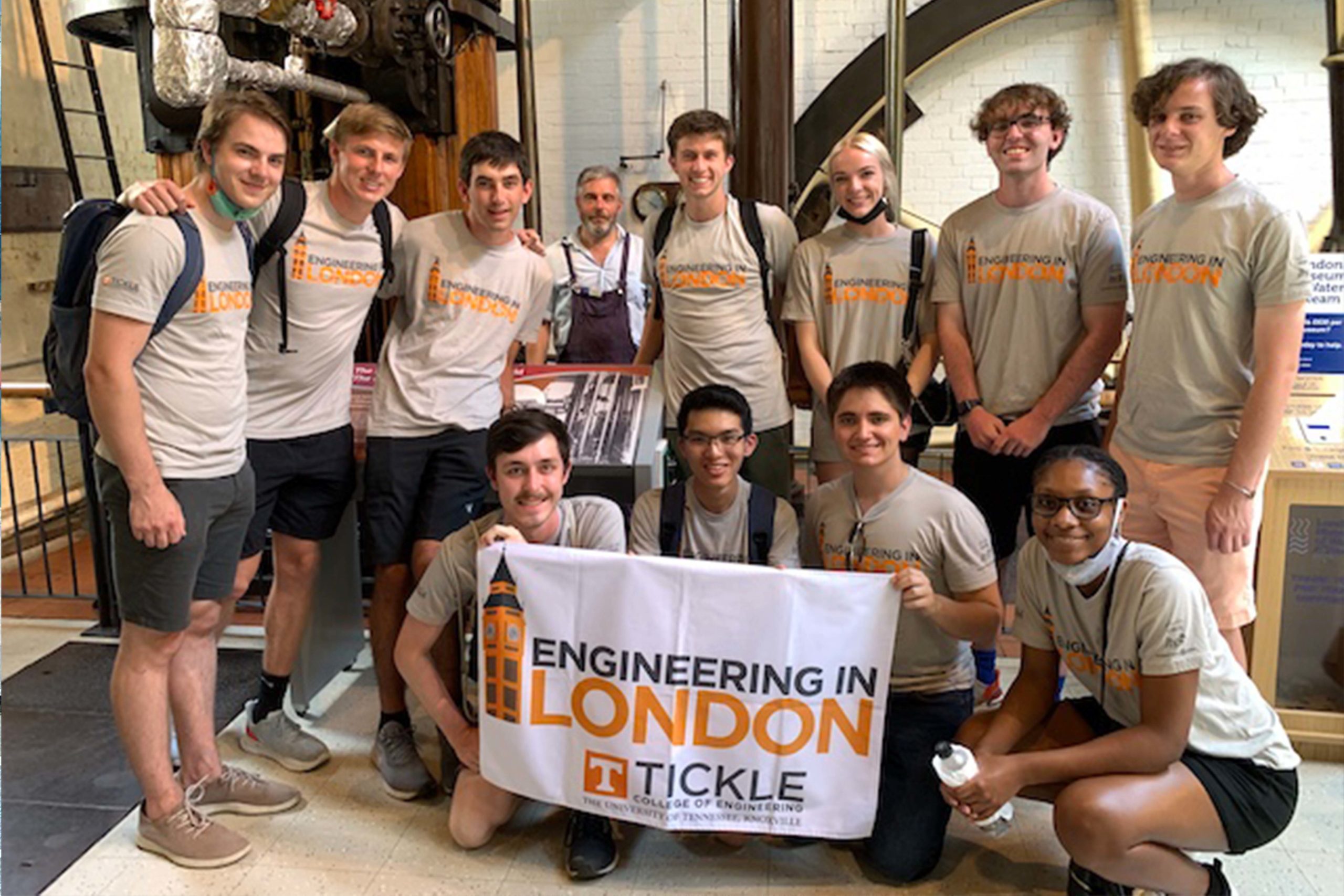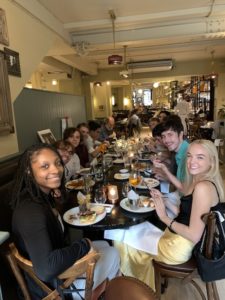
Students pose while in the field during the UTK Engineering in London program
by Alexandra DeMarco
For students deciding to study abroad, it can be difficult to narrow down a location or a program. But Michael Berry, professor in the Min H. Kao Department of Electrical Engineering & Computer Science, has a simple solution when deciding where to plan study abroad programs: follow the history.
Berry runs the Engineering in London program, which will celebrate its tenth year of taking students across the pond this summer. Berry actually collaborated with other faculty members to found the program, in an effort to expand Tickle College of Engineering’s study abroad catalog. Engineering in London is one of Tickle’s largest study abroad programs in terms of enrollment, with a host of doctors, lawyers and, of course, engineers among its repertoire of 165 alumni. The program contracts with IES Abroad for the trip, which has been instrumental during coordination efforts, Berry says.
When deciding on a program destination, London was the easy choice, Berry says. It was in that historical town where so many feats of engineering were accomplished over the last 200 years: Alan Turing developed the theory of computation and helped crack the German Enigma code during World War II in the same city where, a century prior, the Victorians’ novel steam engine launched England into the Industrial Revolution.
While abroad, students take ECE 301 – Circuits and Electro Mechanical Components and ME 331 – Thermodynamics. Outside of the classroom, students venture out on excursions to delve into London’s rich engineering history, with visits to sites such as the Faraday Museum, home of the first surviving electric motor, and a running steam engine hall.
“With the steam engines, they were built primarily in certain parts of London to pump the water out of the Thames River because, guess what, there were no sewer systems and people were dying of the plague, and so water management was key. … We still have these problems today, and it shows them how engineering has social impacts in a very significant way on how you improve the quality of life by your innovations,” Berry said.
In just a few weeks, the program packs in two typically 16-week-long courses, in addition to a plethora of other lessons.

Students enjoy a meal during the UTK Engineering in London study abroad program
For example, students visit the British Science Museum, which houses a machine designed and partially-built by Charles Babbage, “father of the computer,” in the 19th century. The most important takeaway from the trip, however, is actually about another machine that Babbage designed a century before humans had the knowledge to actually build it: the Analytical Engine.
“The part of the lesson that the students learn is that you innovate way beyond what is in front of you, and that sort of plays up today with quantum computing and looking at what’s coming down the road, that you can’t wait for the future to happen,” Berry said.
The trip is influential for many students in affirming their career paths.
“A lot of them have validated ‘why I want to be an engineer,’” Berry said. “It’s sort of what the people say — you have to study history a little bit to understand why we’re doomed to repeat things.”
The trip is also great practice for professional life, Berry says; the students study from 9 a.m. to 3 p.m. during the program and also learn how to navigate a large, metropolitan city on their own.
“We want to make sure they understand that there’s no free lunch,” Berry said. “You have to really work hard through maybe the issues you deal with today related to the pandemic, maybe it’s politicalization. You’ve got to work through these issues to innovate.”
As a professor, watching students grow through their experiences abroad is just as rewarding, Berry says.
“We’re very proud of the fact that I think we’ve had a lot of global engagement with our students,” Berry said. “We’d like to have more. … I enjoy running a study abroad program. I think it’s awesome. I’ve seen the effects it has on our students.”
This summer, Engineering in London students will embark on a historical journey from June 10 to July 9. Check out UT programs abroad opportunities at the Programs Abroad Office website.
CONTACT:
Jason Moody (865-974-5752, jmoody9@utk.edu)